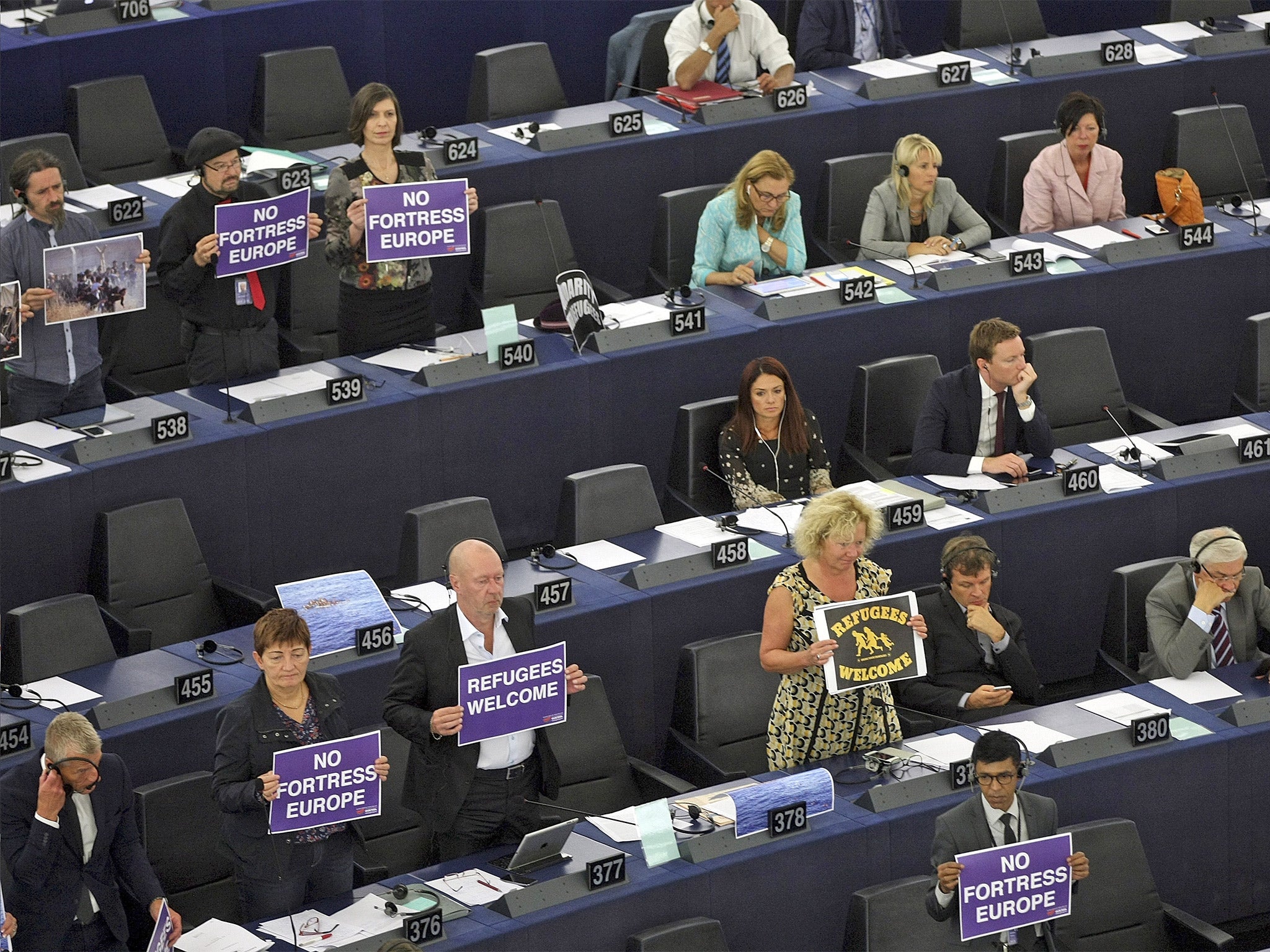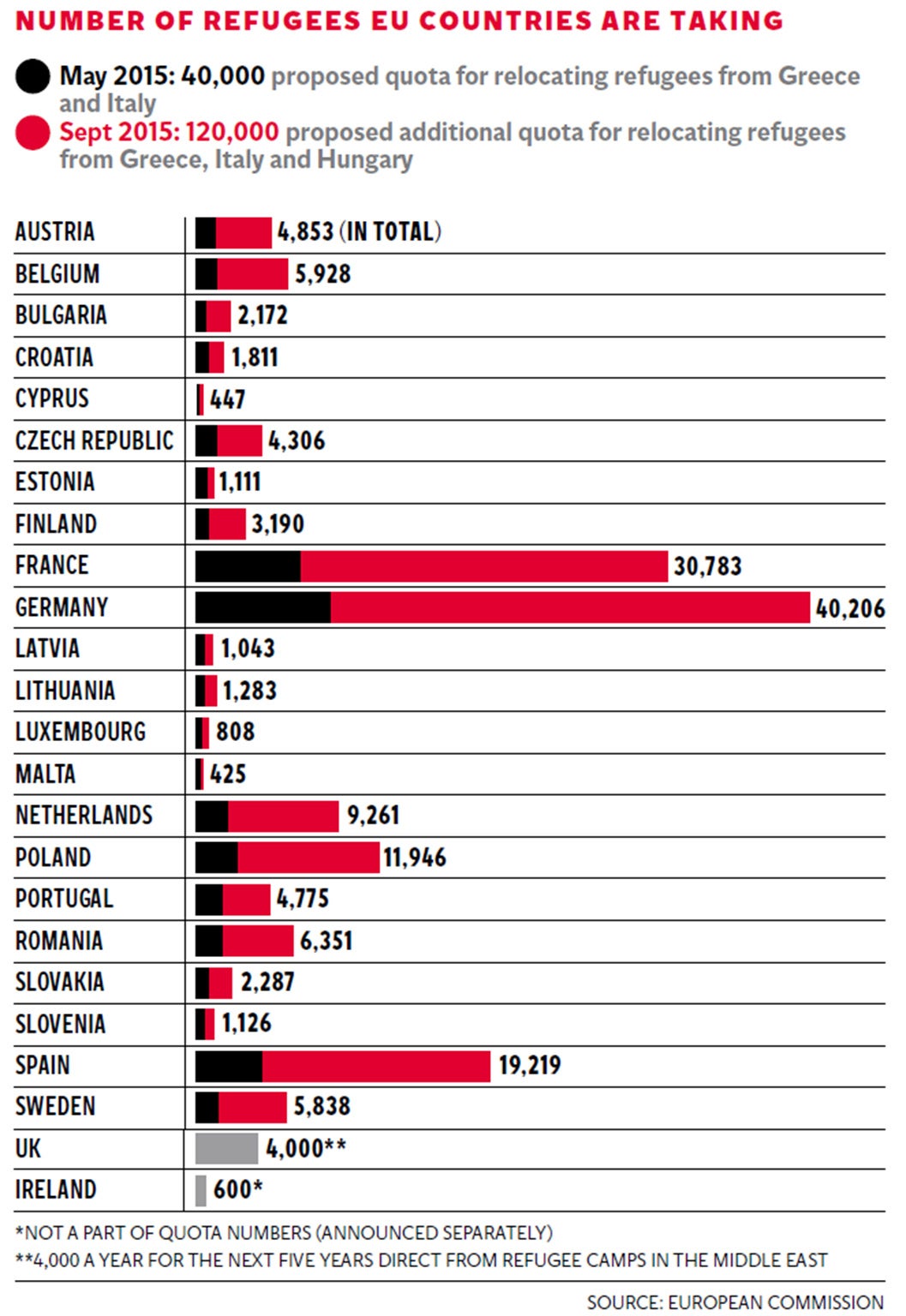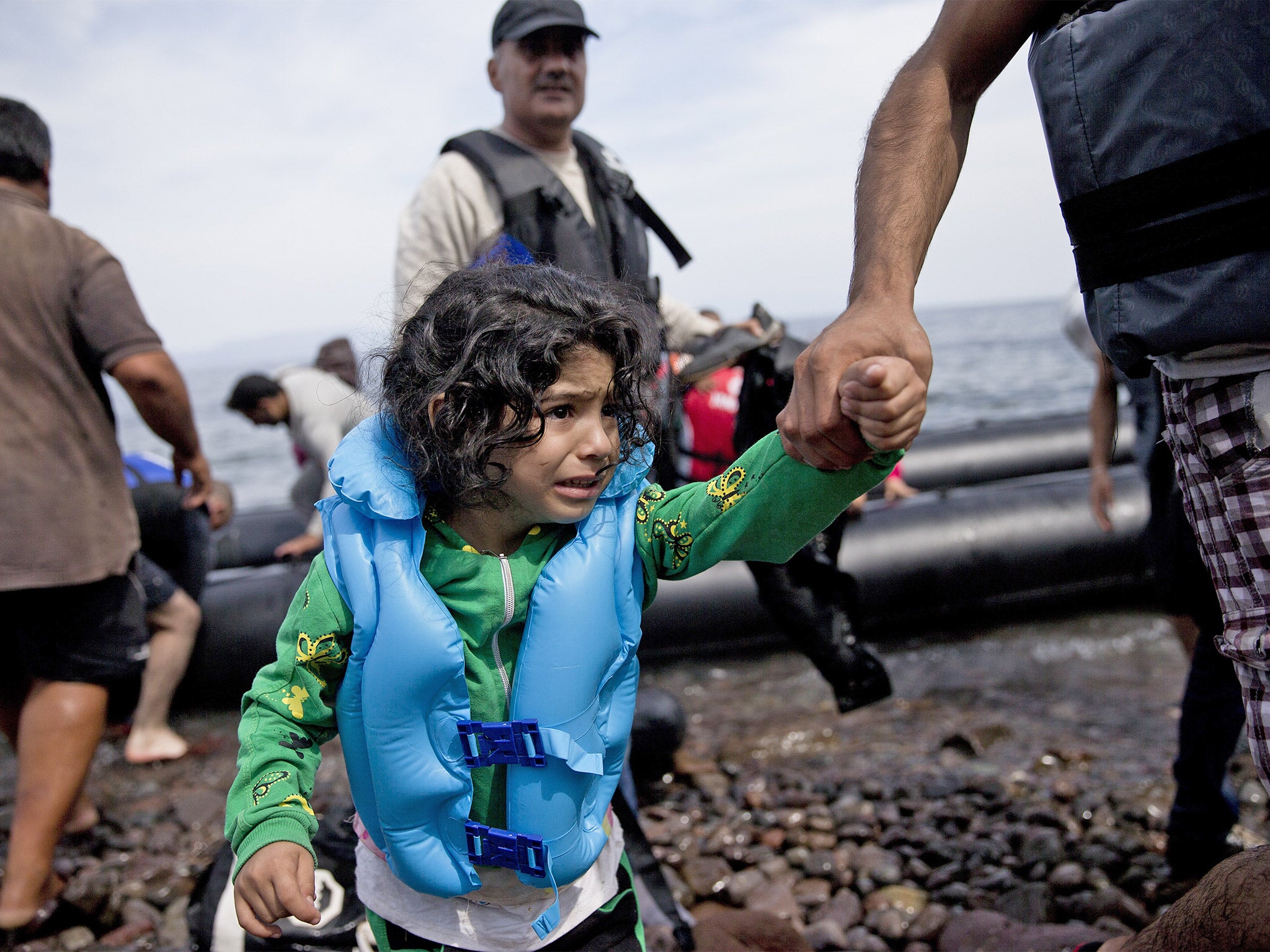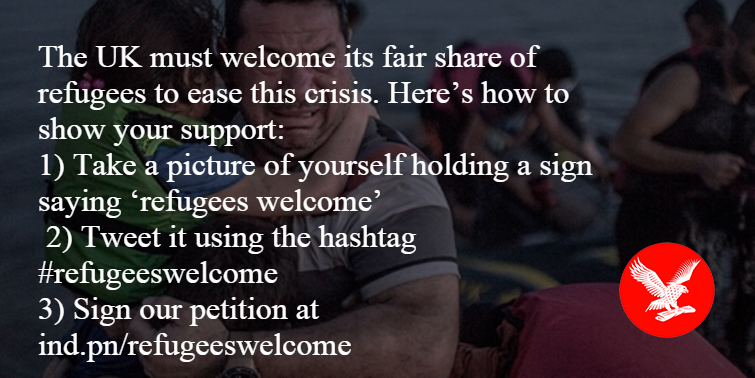Refugee crisis: More compassion but tighter borders – Jean-Claude Juncker unveils ambitious overhaul of Europe's migration policy
European Commission President admits system is broken but reassures states

Europe should embrace more refugees fleeing war and dictatorship while also tightening border controls and more strictly enforcing its returns policy, the European Commission President, Jean-Claude Juncker, said as he unveiled an ambitious overhaul of migration policy.
Speaking at the European Parliament in Strasbourg in his first State of the Union speech, Mr Juncker urged EU countries to share 160,000 refugees as he warned that Greece, Italy and Hungary could no longer cope with the recent influx. The relocation plans will initially apply to refugees from Syria, Iraq and Eritrea, whose applicants currently have a 75 per cent success rate for asylum recognition in EU countries.
At the same time he effectively admitted that the EU’s current system was broken, as border controls and asylum processing have been overwhelmed by the wave of people making their way to Europe. “The numbers are impressive, for some they are frightening,” Mr Juncker said. “But now is not the time to take fright, it is the time for bold, determined, concerted action.”
In a move aimed at balancing a liberal asylum policy with a more effective border policy that was first revealed by The Independent last weekend, he called for a beefing up of Frontex, the EU’s own frontier agency, and a common regime of EU border guards.

Frontex would become a “fully operational border and coastguard system” with “rapid return intervention teams” that would be deployed to deport irregular migrants. This will be accompanied by stiffer measures to return economic migrants, who do not face the same threats as refugees from war zones or other trouble spots. In 2014 the EU sent back less than 40 per cent of those refused asylum.
Read: Five practical ways you can help refugees
Editorial: Sign The Independent's petition to welcome refugees
10,000 refugees reach Munich and are greeted with food and water
Part of the problem is the divergence of view among EU countries over which countries are “safe” for migrants to be returned to. Mr Juncker proposes a common EU list of countries to which migrants can be sent without fear of political persecution. The initial list includes Albania, Bosnia, Macedonia, Kosovo, Montenegro, Serbia and Turkey, which account for around 17 per cent of the asylum applications lodged in the EU.

Mr Juncker pleaded for a compassionate and practical approach to the crisis, underlining how migration shaped Europe and how the European project was built on the values of solidarity. “This is first of all a matter of humanity and of human dignity,” he said. “We Europeans should remember well that Europe is a continent where nearly everyone has at one time been a refugee.”
The relocation plan builds on a proposal first made in May to redistribute 40,000 refugees arriving in Italy and Greece by adding those who are in Hungary. The 120,000 asylum seekers set to be redistributed around the EU include 54,000 from Hungary, 50,400 from Greece and 15,600 from Italy. EU members will receive €6,000 per relocated person, while Italy Greece and Hungary will receive €500 for each person to cover transport costs.
Britain, Ireland and Denmark are not included in the proposed relocation scheme as they have exemptions from such justice and home affairs issues, but Ireland has indicated it will nonetheless take in 600 refugees. Britain will meanwhile continue to contribute to the EU’s asylum, migration and integration Fund – which has a €3.1bn budget over seven years – that supports migration and asylum management.

The relocation proposal includes a mechanism for member states for a one-year opt out of the scheme “for justified and objective reasons” such as natural disasters. In exchange, they will have to offer financial compensation of up to 0.002 per cent of GDP.
Mr Juncker said the measures would be bolstered by a review of the Dublin Regulation, under which people must claim asylum in the state where they first enter the EU. He said the EU would “develop safe legal avenues for those in need of protection”, and a permanent scheme to resettle refugees from other regions. “Migration has to be legalised,” he said. “We have to organise legal ways to Europe.”
The overhaul will be accompanied by new measures allowing asylum seekers to work while their applications are being processed. “We should do everything to change our national legislation to allow refugees to work from day one of their arrival,” Mr Juncker said.
The proposal will be formally presented at a meeting in Brussels on Monday. Mr Juncker wants ministers to back the measures at the meeting, and having secured the backing of the likes of Germany, France and Spain, it is expected to become law, despite fierce opposition from eastern European countries including Hungary, the Czech Republic and Slovakia.

Mr Juncker also said the EU should do more to address the causes of migration, and announced a €1.8bn “emergency trust fund for stability and addressing root causes of irregular migration in Africa”.
During his speech to MEPs, Mr Juncker endured barracking from Nigel Farage, the Ukip leader, who claimed that many Islamic migrants were a security threat and said Europe must be “mad” to take such a “risk”. Mr Juncker responded to one heckle, saying: “You can interrupt me from time to time. I will not at each time respond to what you are saying, because what you are saying is worthless.”
Juncker’s migration plans
Relocation: A binding system to redistribute 160,000 asylum-seekers from Greece, Hungary and Italy to other EU countries.
Deportation: A common EU list of safe countries whose citizens are more likely to be returned. The Balkan nations and Turkey are on the draft list.
Stronger border forces: The Frontex agency will also be reinforced to become “a fully operational European border and coast guard system”.
Foreign aid: A €1.8bn (£1.3bn) emergency trust fund for Africa to help countries manage migration better.

Join our commenting forum
Join thought-provoking conversations, follow other Independent readers and see their replies
Comments
Bookmark popover
Removed from bookmarks